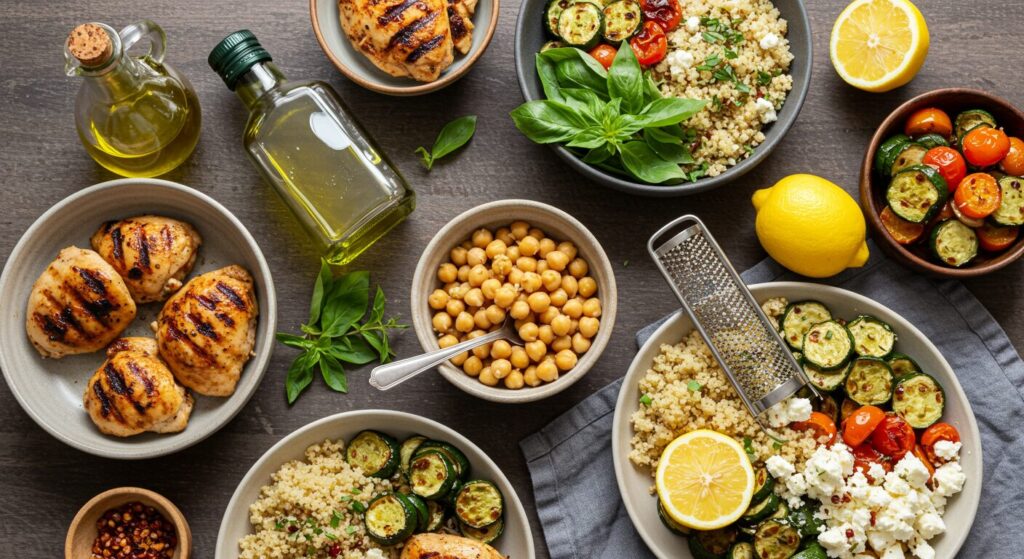
Mediterranean
$14.75 — or $14.75 Original price was: $14.75.$12.54Current price is: $12.54. / week
The Mediterranean diet is inspired by the traditional dietary patterns of countries bordering the Mediterranean Sea. It emphasizes the consumption of plant-based foods, whole grains, legumes, and various fruits and vegetables. Olive oil is a key component, providing healthy fats and antioxidants.
Ingredients
Cal
N/A
Prot
N/A
Carb
N/A
Fat
N/A
Our Take On Mediterranean
The Mediterranean diet is inspired by the traditional dietary patterns of countries bordering the Mediterranean Sea. It emphasizes the consumption of plant-based foods, whole grains, legumes, and various fruits and vegetables. Olive oil is a key component, providing healthy fats and antioxidants. This diet also includes moderate amounts of fish and seafood, poultry, dairy products, and red wine in moderation. Red meat, processed foods, and added sugars are limited in the Mediterranean diet. The diet is known for its potential health benefits, including a reduced risk of heart disease, certain cancers, and cognitive decline. It is often praised for its flexibility and enjoyment of food, as it encourages social meals and the use of fresh, flavorful ingredients. The Mediterranean diet is considered a balanced and sustainable approach to eating that promotes overall well-being and longevity.
Ingredients can include but are not limited to the following:
Fruits: Apples, oranges, berries, grapes, pears, and other seasonal fruits.
Vegetables: Tomatoes, cucumbers, broccoli, spinach, kale, onions, and bell peppers.
Whole Grains: Whole wheat bread, brown rice, quinoa, oats, and whole grain pasta.
Legumes: Chickpeas, lentils, beans, and peas.
Fish and Seafood: Salmon, sardines, tuna, shrimp, and other seafood.
Poultry: Chicken and turkey.
Dairy Products: Greek yogurt, cheese, and milk (in moderation).
Olive Oil: A primary source of healthy fats.
Nuts and Seeds: Almonds, walnuts, pistachios, chia seeds, and sesame seeds.
Herbs and Spices: Basil, oregano, rosemary, thyme, garlic, and cinnamon.
Average consumption ratios:
Carbohydrates: Around 40-45% of total daily calories. The focus is on complex carbohydrates from whole grains, legumes, and fruits.
Protein: Moderate intake, typically around 15-20% of total daily calories. It can come from sources like lean meats, fish, poultry, and legumes.
Fat: Around 35-40% of total daily calories. The primary source of fat is from olive oil, nuts, seeds, and fatty fish.

